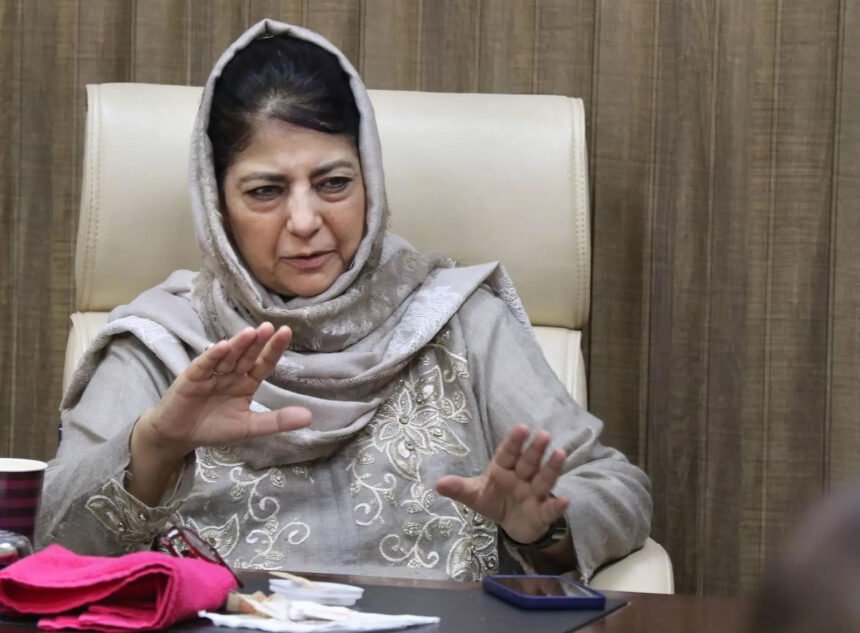PDP president Mehbooba Mufti has launched a scathing attack on the Bharatiya Janata Party (BJP) following the induction of NCP leaders into the Maharashtra council of ministers. Mufti accused the ruling party of engaging in an “MLA purchasing spree” in an apparent reference to the NCP leaders joining the Eknath Shinde-led Maharashtra government. The move saw NCP leader Ajit Pawar being sworn in as the deputy chief minister, accompanied by eight other NCP leaders who took oath as ministers.
The political landscape in Maharashtra witnessed a significant development as the NCP leaders joined the state government. However, Mufti’s comments highlighted a perceived issue of poaching elected representatives to bolster political strength. Mufti, known for her outspoken stance, expressed her concerns over what she viewed as the BJP’s tactic of acquiring support through political maneuvering.
The induction of Ajit Pawar and the other NCP leaders into the Maharashtra government came as a strategic move by the ruling alliance. The development aimed to consolidate the coalition’s position and ensure a smooth functioning of the government. However, critics argue that such actions raise questions about ethical practices in politics and undermine the democratic process.
Mehbooba Mufti’s criticism of the BJP’s alleged “MLA purchasing spree” resonates with concerns often voiced by opposition parties. The practice of attracting elected representatives from other parties, through enticements or political alliances, has been a controversial aspect of Indian politics. Mufti’s comments highlight the growing debate surrounding the ethics and integrity of such practices.
The BJP, as the ruling party, has faced criticism in the past for its alleged involvement in poaching elected representatives to secure political power. The party’s opponents argue that this strategy diminishes the democratic values on which the Indian political system is built. Such criticisms often arise when major political realignments occur, prompting accusations of horse-trading and opportunistic politics.
Political observers opine that the entry of NCP leaders into the Maharashtra government is part of a broader political strategy. The BJP’s move is seen as an attempt to expand its base and strengthen its position within the state. However, critics argue that this approach could undermine the spirit of fair competition and impede the growth of healthy democratic institutions.
The Maharashtra government’s composition plays a vital role in shaping the state’s policies and governance. Therefore, any changes in the council of ministers are closely scrutinized by political commentators and the public alike. The recent induction of NCP leaders has not only sparked a political debate but has also raised questions about the intentions and methods employed by the ruling party.
Mehbooba Mufti’s accusation of an “MLA purchasing spree” highlights the need for transparency and ethical conduct in political affairs. It brings to the fore the importance of maintaining the integrity of the democratic process and ensuring that elected representatives prioritize the welfare of the people they represent.
While political realignments and alliances are a common occurrence in Indian politics, the manner in which they are executed often determines public perception. The accusations made by Mufti and others reflect a growing concern about the influence of money and power in shaping political outcomes.
The repercussions of the BJP’s alleged “MLA purchasing spree” in Maharashtra are yet to be fully realized. However, it is evident that the move has triggered a heated debate about the ethical boundaries within which political parties should operate. The concerns raised by Mehbooba Mufti and others emphasize the need for a more principled and transparent political landscape that prioritizes the interests of the people over partisan gains.




